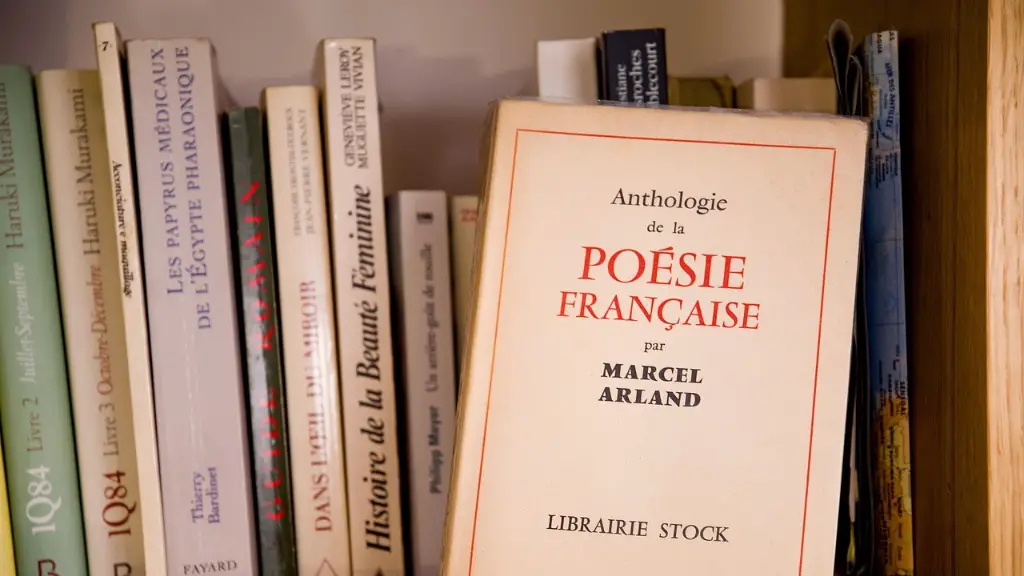Definition
Metaphysical poetry is a style of poetry developed in the 17th century by British poets such as Andrew Marvell and John Donne. It is characterized by the use of complex intellectual, psychological, and spiritual ideas expressed in unexpected ways. Metaphysical poetry uses vivid imagery and extended metaphors to explore the deeper meanings of life. It is often seen as a form of religious or philosophical expression, with its emphasis on exploring spiritual questions and the human experience.
Structure and rhyme scheme
Metaphysical poetry tends to be structured in a symmetrical manner with a linear progression of ideas. It often features lengthy metaphors and employs a flexible rhyme scheme. While the structure of metaphysical poetry is not always immediately apparent, its rich language and complex imagery make it an enjoyable and rewarding read.
Themes
The themes explored in metaphysical poetry are varied and often complex. Love, faith, mortality and nature are all common themes explored in metaphysical poetry. Other topics discussed in metaphysical poetry include death, justice, society and morality. Metaphysical poets often used their work to explore philosophical questions, such as the role of God in man’s life.
Imagery
Metaphysical poetry is known for its vivid imagery and extended metaphors. Metaphysical poets often used extended metaphors to explore complex intellectual, psychological and spiritual ideas. Metaphysical poetry often contains unusual descriptions of emotions and physical objects, as if seen through a different lens. These descriptions can be haunting, surprising and sometimes even humorous.
Influence
Metaphysical poetry has had a lasting influence on poets from the 17th century to the present day. Notable figures such as T. S. Eliot and Ezra Pound have been greatly impacted by metaphysical poetry in their own work.Beyond poetry, the influence of metaphysical poetry can be seen in other forms of literature and culture, such as in visual art pieces and music lyrics.
Impact
Metaphysical poetry has a unique ability to explore the complexities of life, love and death in creative ways. By presenting these topics in surprising and powerful ways, metaphysical poets have been able to move and inspire audiences for centuries. The impact of metaphysical poetry on readers and other artists has been undeniable, as its influence has been felt in the literary world for hundreds of years.
Significance
Metaphysical poetry is significant for its exploration of spiritual, philosophical and psychological themes, as well as its strong emphasis on vivid imagery and symbolism. The genre has provided readers with opportunities to reflect on their own lives, explore the deeper meanings of existence, and be moved and inspired by powerful language and ideas. Metaphysical poetry has been a powerful way for readers to gain new perspectives and insights into life, love, death and the human experience.
Influential Metaphysical Poets and Poems
Metaphysical poetry flourished in the 17th century, with some of the most influential metaphysical poets including Andrew Marvell, George Herbert and John Donne. Many of Donne’s metaphysical poems have been widely celebrated, such as “The Flea” and “A Valediction Forbidding Mourning”. Marvell’s “To His Coy Mistress” is another well-known metaphysical poem. Other influential metaphysical poets include Richard Lovelace, Henry Vaughan, and Abraham Cowley.
Language and Symbolism
Metaphysical poets have been known for their use of language, symbolism and metaphors. They often employ unusual descriptions and metaphors to explore complex ideas and emotions. Metaphysical poets take great care in crafting their language and imagery to evoke strong feelings in readers. This provides readers with opportunities to reflect on their own lives, explore the deeper meanings of existence, and gain new perspectives and insights into life.
Popularity
Despite its complex nature and intellectual themes, metaphysical poetry has remained popular over the centuries. The enduring appeal of metaphysical poetry is in its combination of intellectual ideas and vivid imagery. While the language and imagery can be confusing at times, the themes explored in metaphysical poetry remain relevant to contemporary readers.
Style
Metaphysical poetry has a distinctive style. Its use of extended metaphors and vivid imagery often obscures the true meaning of the poem, creating an element of mystery and suspense. As a result, readers may be forced to stop and think about the deeper messages of the poem. The use of witty and unexpected turns of phrase, as well as philosophical and intellectual ideas, make metaphysical poetry an engaging and rewarding read.
Influence on Other Genres
Metaphysical poetry has had an influence on other genres, such as music and visual art. Many modern-day music lyrics have been described as metaphysical in nature, often featuring extended metaphors and symbolism. Similarly, visual art pieces can also borrow elements of metaphysical poetry, such as its vivid imagery and deep spiritual questions. As a result, metaphysical poetry has left its mark on other forms of art.



